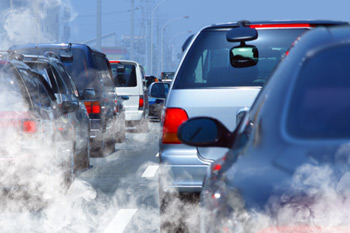WABE aired a report on air pollution in Atlanta during the COVID shutdown. They interviewed Dr. Christina Fuller from Georgia State, Dr. Ted Russell from Georgia Tech, and Dr. Bryan Duncan from NASA who graduated from Georgia Tech.
Dr. Fuller noted that there was an almost 40% decrease in cars and trucks on the highways during the shutdown. She said that levels of particulate matter (PM) had dropped during the shutdown, but that since weather can affect particulate levels, more work needs to be done to analyze how much of the decrease is due to each one.
Dr. Duncan analyzes nitrogen dioxide (NO2), which mainly comes from traffic and power plants. He said there was a 30-40% decrease over the whole east coast, including Atlanta. He also said more analysis is needed to separate weather effects from human changes, and commented that the decrease was “absolutely dramatic.”
Dr. Russell talked about ozone. Ozone did not show such a dramatic decrease this spring, partly because of the season – ozone is typically lower in the spring when it’s not so hot. He said that it’s not surprising that ozone didn’t have such a dramatic decrease as PM or NO2, because ozone formation is so dependent on weather.
Both Dr. Fuller and Dr. Bryan are hoping people (and companies) will learn they like telecommuting and continue to do it after the shutdown. Dr. Fuller hopes people will realize how much cars contribute to our air pollution problem.
Dr. Fuller was on our Clean Air Conversation about Air Pollution, Covid-19, and Environmental Racism on June 9. You can watch that conversation here.





